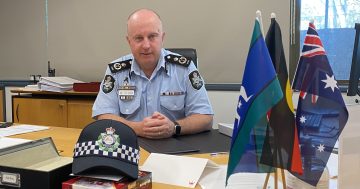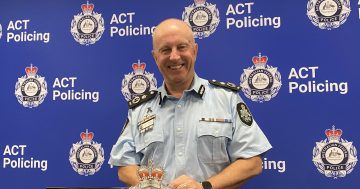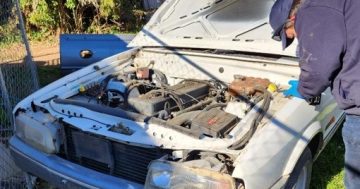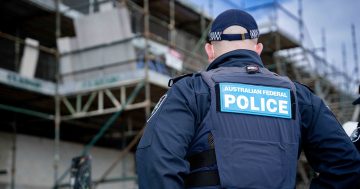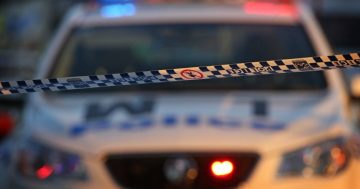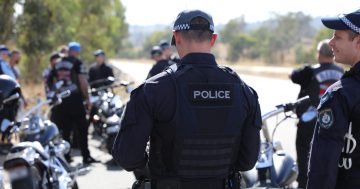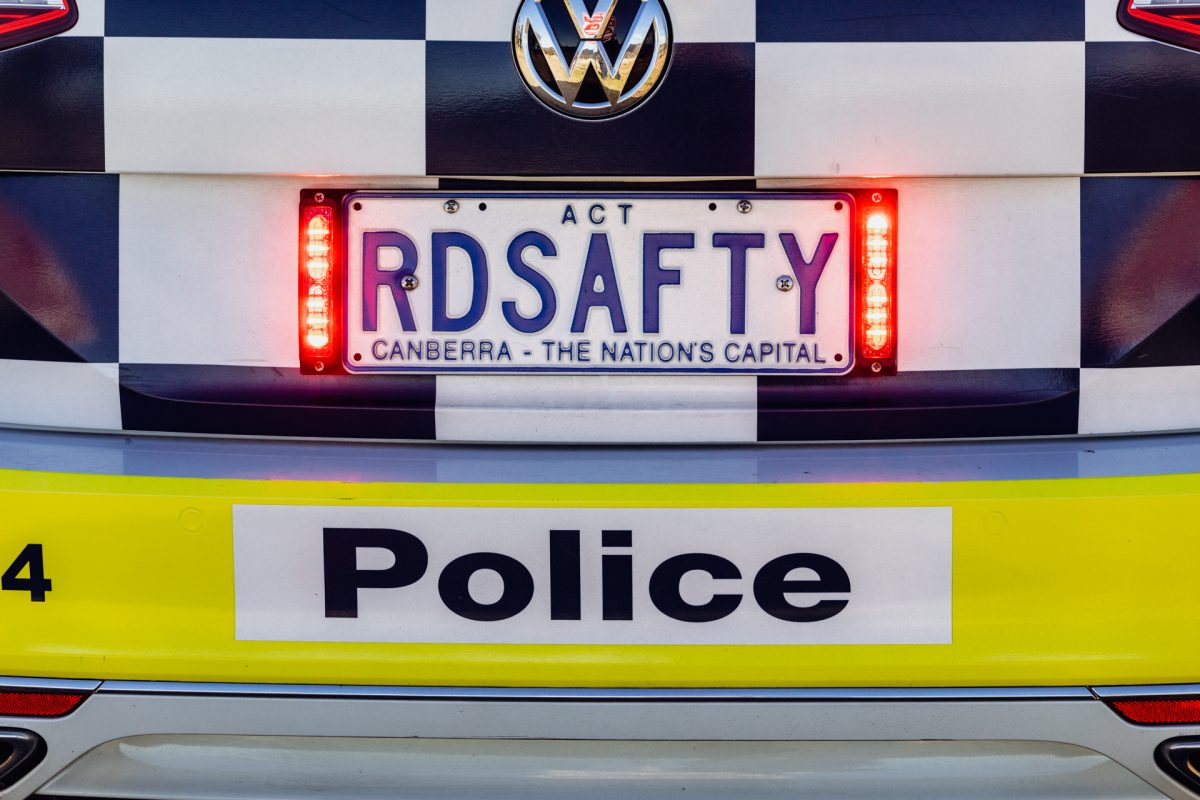
Motor vehicle theft in the ACT is much higher than around the country. Photo: Michelle Kroll.
Motor vehicle theft continues to climb in the Territory at a far quicker rate than the rest of Australia. And while the Territory’s top cop is loath to “victim blame”, he has again urged drivers to think about their own actions.
According to ACT Policing’s most recent annual report, just less than 1500 cars were stolen in 2021-22.
That’s the highest number since 2017-18 and means the rate of vehicles stolen per 1000 people is now almost double the national average.
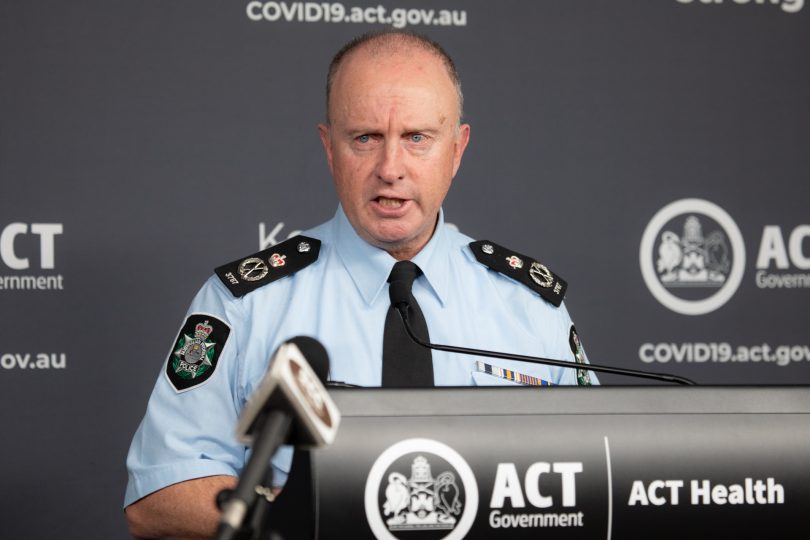
Chief Police Officer Neil Gaughan was questioned about why there is so much car theft in the Territory. Photo: Michelle Kroll.
In hearings on Tuesday (1 November) Chief Police Officer Neil Gaughan was asked a question he couldn’t answer – why so much car theft?
He agreed motor vehicle theft was an issue for police on the beat and asked motorists – some of whom still treated Canberra like a “big country town” – to take responsibility and care.
“Some of the cars we are seeing have been stolen with the keys in them and unlocked. In some cases [they’re] unlocked, keys in them and engines running because drivers have gone inside while their windows are defrosting,” he told the hearing.
“I’m not victim-blaming here but I think there’s a need for motor vehicle owners to take some personal responsibility.
“We will continue to push that education.”
Police again ran an annual awareness campaign this winter to encourage drivers to remain with their vehicles while they warmed up in the morning.
CPO Gaughan said cross-border issues also plagued police response to car theft, with many vehicles stolen in the ACT ending up in NSW towns including Goulburn and Yass, or even Sydney in some cases.
It was also unclear how many vehicles were being stolen to commit other crimes and how many were used for “joy-riding”, what should be renamed “dangerous driving” according to CPO Gaughan.
He said while the cohort of criminals involved in stealing vehicles, property crime and high-speed pursuits was small – about 200 – it represented a “significant risk to the rest of the community”.
Operation Toric – set up in September to specifically target repeat offenders of these crimes – has already led to 122 arrests for 310 offences including aggravated and dangerous driving, driving at police, taking a motor vehicle without consent, drug driving and firearm-related charges.
Of these, 39 people were on bail, 16 on good behaviour orders, five on intensive corrections orders and eight on parole. Two of these were from NSW and “less than a handful” were first-time offenders.
He said these challenges were not isolated to the Territory with the “bail issue … particularly with juveniles” also a problem in NSW.
The nature of policing the ACT meant new cross-border strategies were being worked on and would be put in place in coming months, CPO Gaughan said.
He didn’t provide further details.
CPO Gaughan was asked why police media had recently been increased for breaches of bail and other details about their offences.
“There is a strategic decision I took – as Chief Police Officer – that I would be a little bit more transparent with the community because I think they need to know when people are arrested while on bail.
“I made that decision. You will see that in our press releases we will make a [very overt] statement about whether someone is on bail or not. We shouldn’t be censored in giving that information.”
Tackling recidivism continued to be a policy priority for the Justice and Community Safety Directorate, its officials told the hearing.












